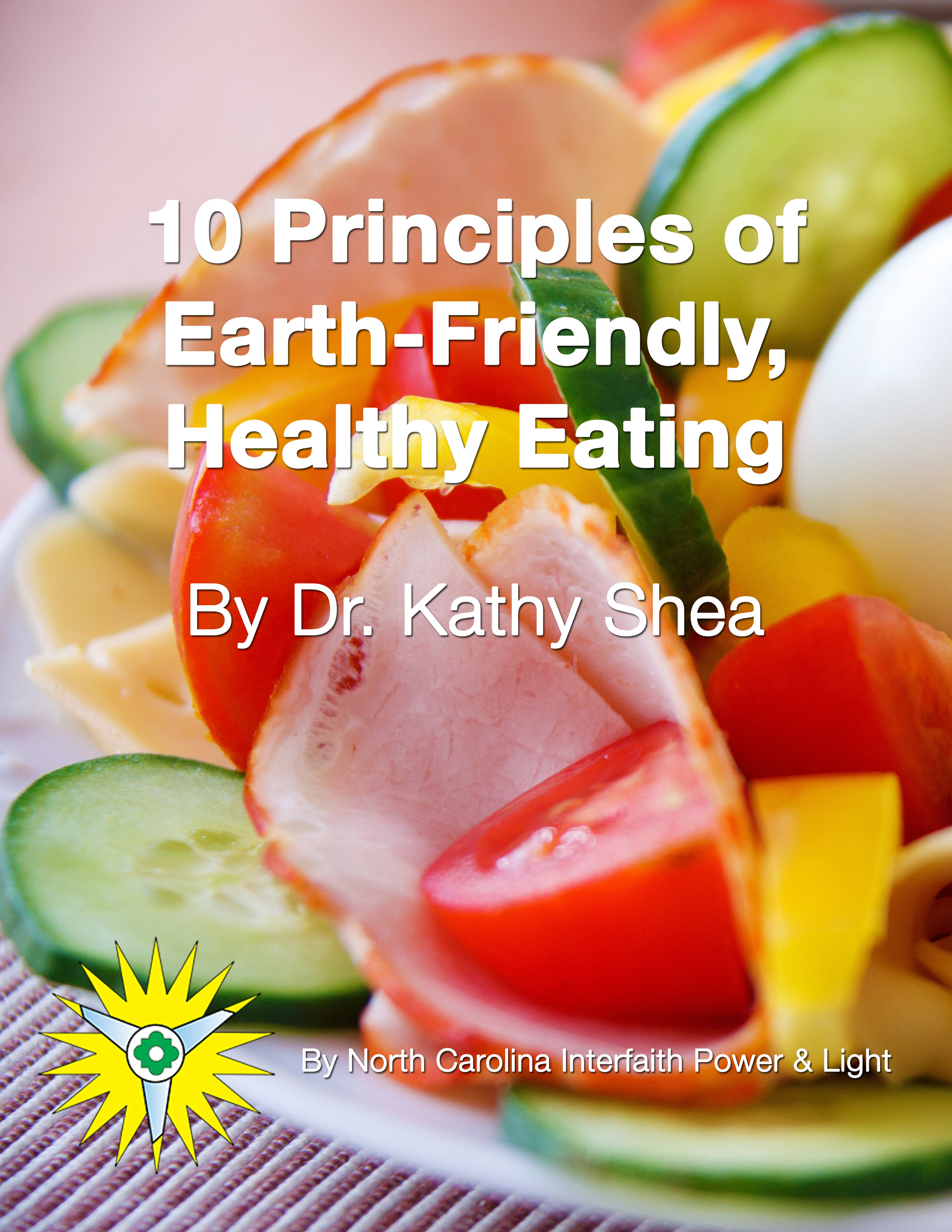Description
- Eat everything you buy: 25% (some say as much as 40%) of food purchased in the USA goes to waste. Buying and cooking only what you need, avoiding waste and spoilage is good stewardship and good economics!
- Eat enough (but not too much): 2/3 of American adults and 17% of American children are overweight or obese. If we eat only what we need (most of the time) we are living in a way that promotes health and allows others to share in the bounty of Creation.
- Cook from scratch and compost cooking scraps and foods that are not eaten: Returning the nutrients to the food chain cycle promotes soil health, reduces the need for fertilizers and reduces the burden on landfills. Cooking from scratch is vastly superior to heating up prepared, boxed, canned, or processed foods which are low on flavor and nutrition and high on carbon costs including packaging/solid waste.
…and much more!



